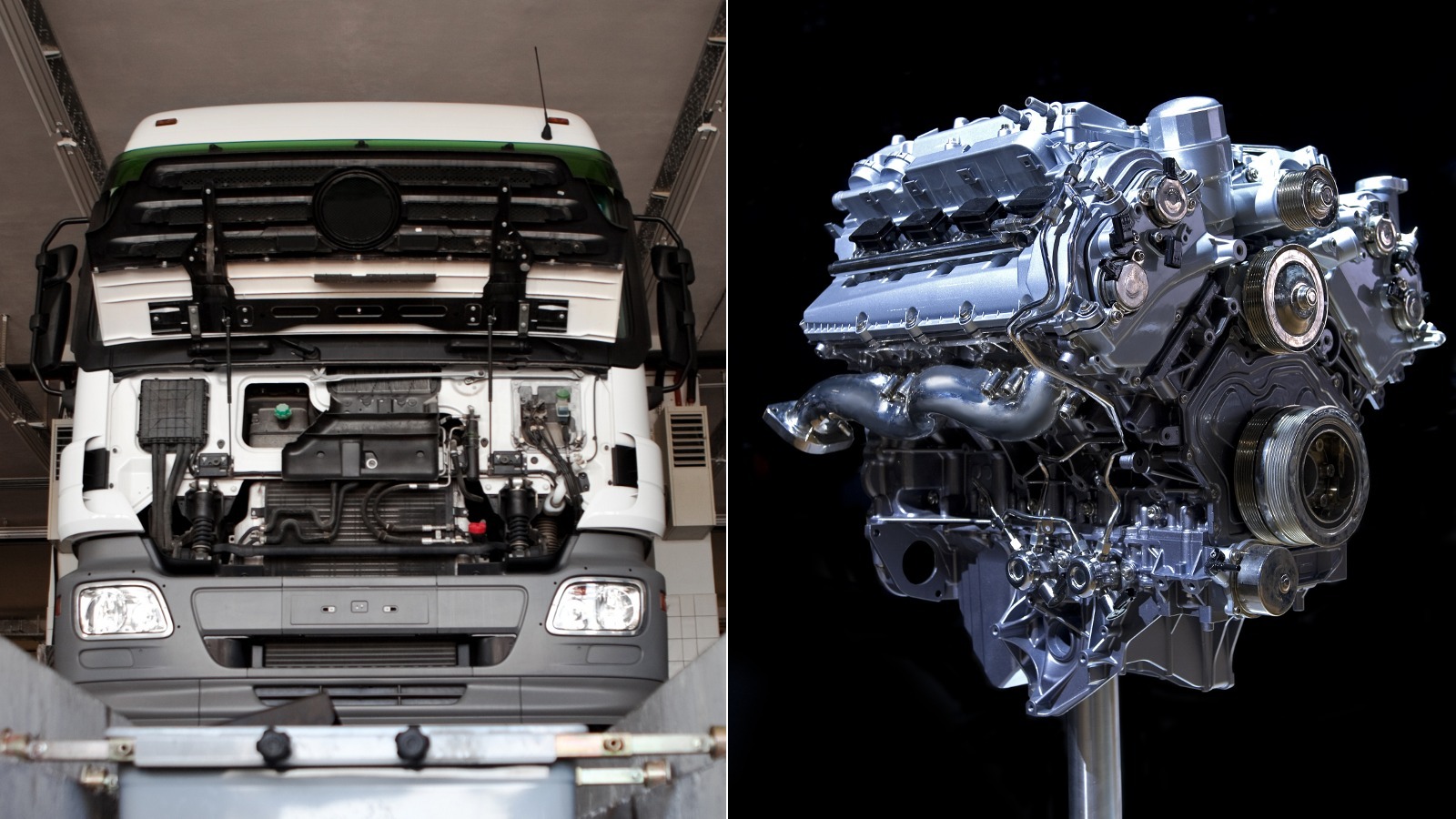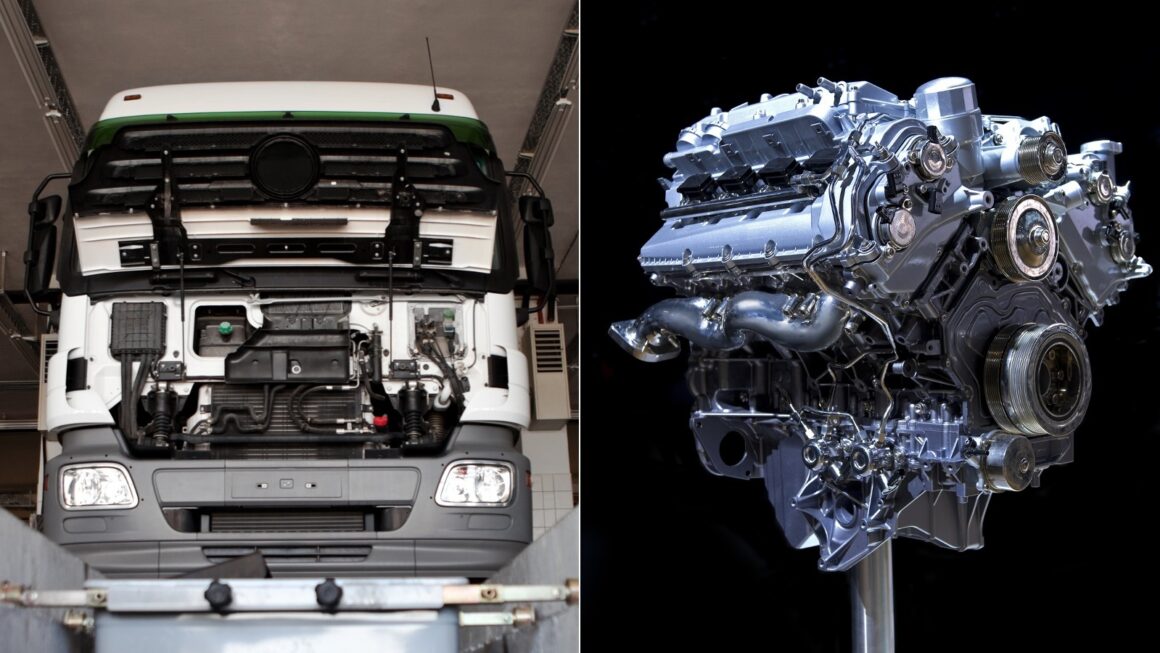
Both diesel and gasoline are what we call four-stroke engines. This means the piston moves across the cylinder four times to complete a cycle. The first stroke is an intake stroke, then comes a compression stroke, followed by combustion and exhaust. However, the difference between gasoline and diesel is that a gasoline engine needs spark plugs to combust. Meanwhile, a diesel engine uses the compressed air from the compression stroke for spontaneous combustion.
More compression means more power. Diesel engines get more compression because diesel is less prone to premature ignition. This allows the piston to travel further and the cylinders to be built taller, generating more power and torque from the combustion stroke. When you compare the space in the cylinder when the piston is at the bottom of its stroke to when it’s at the top of its stroke, you get the compression ratio (CR).
So, a 10:1 CR means that the volume in the cylinder when the piston is at the Bottom Dead Center (BDC) is 10 times that at the Top Dead Center (TDC). Diesel engines typically have a compression ratio between 15 and 20, while gasoline has 8 to 10.
Because diesels have a high compression ratio, their engines need stronger, heavier components, favoring gray cast iron instead of steel. Combined with how far the piston must travel, these components make diesel engines slower, but it translates to more power and greater durability.




